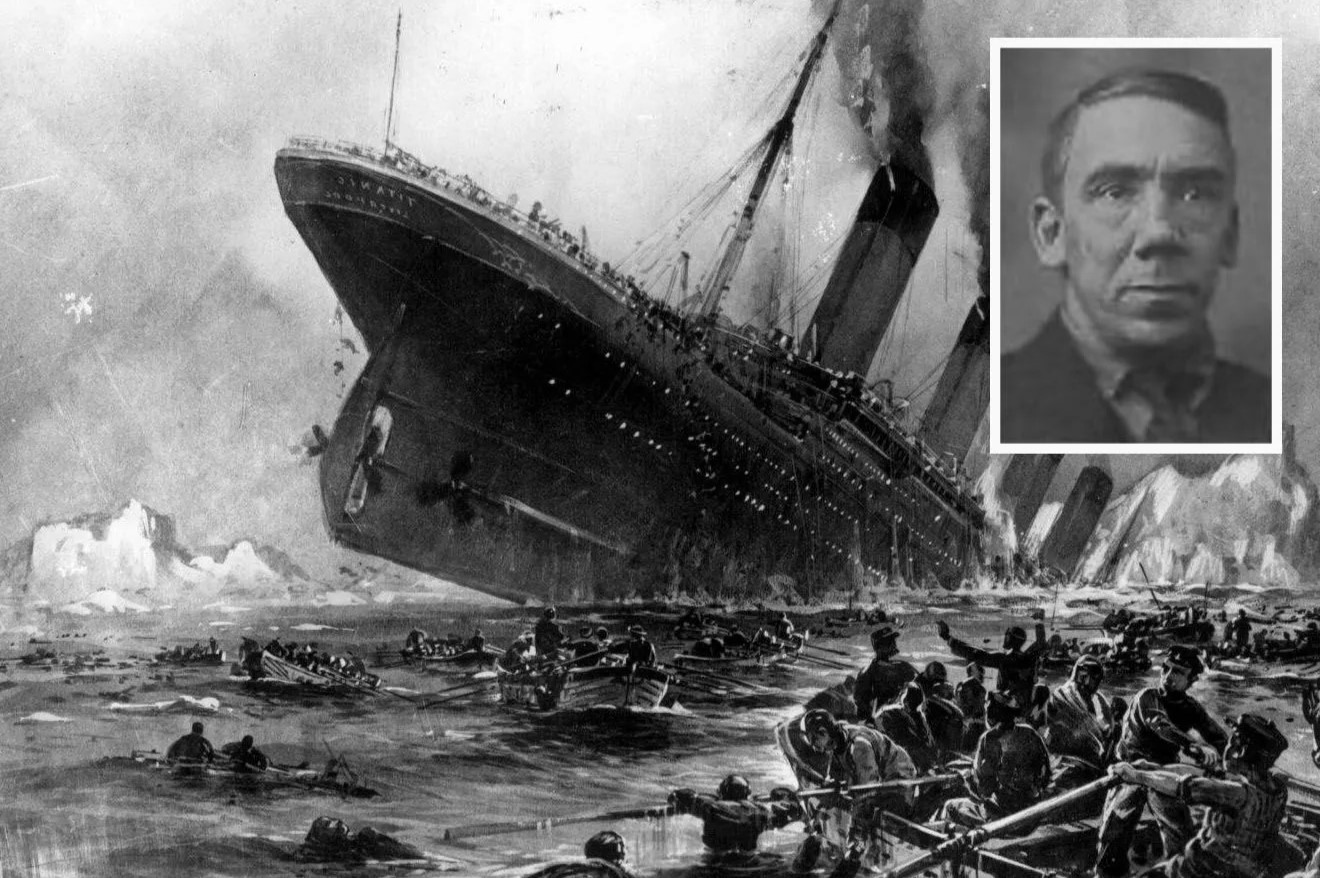
Who was Charles Joughin, and why does his story captivate so many? Charles Joughin, born in 1878 in Birkenhead, England, was the chief baker on the RMS Titanic. His incredible tale of survival during the ship's tragic sinking in 1912 has fascinated people for over a century. Joughin's quick thinking and bravery, from provisioning lifeboats with bread to throwing deck chairs overboard for flotation, showcased his heroism. Remarkably, he survived hours in the freezing Atlantic waters, a feat often attributed to his strong constitution and a bit of whiskey. His story, filled with resilience and determination, continues to inspire and intrigue.
Key Takeaways:
- Charles Joughin, the unsinkable baker of the Titanic, showed incredible bravery and resilience during the ship's sinking, helping others and surviving in freezing waters for hours.
- Despite conflicting accounts, Charles Joughin's survival on the Titanic was a testament to his strong constitution, calm demeanor, and proactive approach to staying alive.
35 Facts About Charles Joughin: The Unsinkable Baker of the Titanic
Charles Joughin's story is one of resilience, bravery, and a bit of luck. His life, especially his experience on the Titanic, has fascinated many. Let's dive into the remarkable journey of this unsinkable baker.
Early Life and Maritime Career
Charles Joughin's early years set the stage for his incredible life at sea.
-
Charles Joughin was born on August 3, 1878, in Birkenhead, England. His birthplace, Patten Street, was a bustling area with a strong maritime influence.
-
His father, John Edwin Joughin, was a licensed victualler. This meant the family had a connection to the hospitality industry from the start.
-
Joughin began his maritime career at the tender age of 11. Inspired by his brothers who joined the Royal Navy, he started working on various ships.
-
He quickly became a skilled baker. His talent in baking earned him positions on several ships, eventually leading to his role on the Titanic.
Life on the Titanic
Joughin's role on the Titanic was crucial, and his actions during the disaster were nothing short of heroic.
-
Joughin was appointed as the chief baker on the RMS Titanic. He held this position during its maiden voyage in April 1912, earning £12 a month.
-
He was in his cabin when the Titanic struck an iceberg on April 14, 1912. Realizing the gravity of the situation, he sprang into action.
-
He mustered his crew to provision the lifeboats with bread. This ensured that those in the lifeboats would have food to sustain them until rescue.
-
Joughin helped load the lifeboats with women and children. Despite having a seat in Lifeboat 7, he gave it up to assist others.
-
He threw deck chairs overboard to provide flotation devices. This act of kindness likely saved several lives.
Surviving the Icy Waters
Joughin's survival in the freezing waters of the North Atlantic is legendary.
-
Joughin found himself in the freezing waters as the Titanic sank. He managed to stay afloat for nearly three hours.
-
His survival is often attributed to his consumption of alcohol. However, he testified that he only had two drinks during the ordeal.
-
Despite the extreme cold, his physical condition remained stable. Experts believe his strong constitution and the whiskey he drank helped him survive.
-
He eventually found a lifeboat but had to float alongside it. The lifeboat was full, forcing him to wait until another boat arrived.
-
Joughin was pulled onto the overturned Collapsible B lifeboat. This lifeboat was one of the last to be rescued.
Post-Titanic Life
Life after the Titanic continued to be eventful for Joughin.
-
Joughin testified at the British Wreck Commissioner's inquiry. His testimony provided valuable insights into the events leading up to the tragedy.
-
In 1920, he moved permanently to the United States. He settled in Paterson, New Jersey, continuing his maritime career.
-
He remarried Annie Eleanor (Ripley) Howarth Coll in 1920. Annie was a widow twice over and had a daughter, Rose.
-
Annie's death in 1943 was a significant loss for Joughin. His health began to decline rapidly after her passing.
-
Joughin died of pneumonia on December 9, 1956, at the age of 78. He was buried alongside his wife in Cedar Lawn Cemetery in Paterson, New Jersey.
Legacy and Cultural Impact
Joughin's story has left a lasting legacy and continues to inspire.
-
His story has been portrayed in various films and television shows. Notable portrayals include George Rose in "A Night to Remember" and Liam Tuohy in "Titanic."
-
Joughin's survival is a testament to human resilience and determination. His actions on the Titanic highlight his role as a hero.
-
The legend of Charles Joughin has captivated audiences for generations. His story has been retold and reinterpreted in various forms of media.
-
Despite the popular narrative, Joughin's own testimony contradicts the claim of him being drunk. He described his actions as calm and deliberate.
-
Experts believe Joughin's survival was due to a combination of factors. His strong constitution, the whiskey he drank, and his ability to stay calm under extreme conditions all played a role.
-
The historical record of Joughin's survival is complex and often contradictory. Some accounts suggest he was drunk, while others portray him as a calm and active participant in the rescue efforts.
-
Joughin's personal accounts of the sinking are notable for their understatement. He described the events in a remarkably casual manner.
-
Joughin's exact time in the water is disputed. He estimated it to be over two hours, but this figure is not universally accepted.
-
His experience of being pulled onto the overturned lifeboat Collapsible B is a harrowing tale of survival. The fact that he managed to stay afloat for so long in freezing waters is a testament to his resilience.
-
Charles Joughin's legacy extends beyond his survival of the Titanic. He continued to work on ships throughout his life, including during World War II.
-
After surviving the Titanic disaster, Joughin did not let it deter him from his maritime career. He continued to work on ships, demonstrating his unwavering commitment to the sea.
-
Joughin's story has been featured in Walter Lord's book "A Night to Remember." His chapter in the book provides a detailed account of his experiences during the sinking and its aftermath.
-
The public perception of Joughin has evolved over time. Initially, he was portrayed as a heroic figure who survived against all odds.
-
The historical accuracy of Joughin's story is often debated. While some details are well-documented, others remain shrouded in mystery.
-
Charles Joughin's story has had a lasting impact on popular culture. His survival and actions during the Titanic disaster have inspired numerous adaptations in film and television.
-
Joughin's personal reflections on the sinking provide a unique perspective on one of history's most tragic events. His calm demeanor and proactive approach to survival serve as a model for coping with extreme adversity.
The Unsinkable Baker's Legacy
Charles Joughin's story is one of resilience and courage. Born in Birkenhead, England, he began his maritime career at 11 and eventually became the chief baker on the Titanic. When disaster struck, Joughin's quick thinking and selflessness shone through. He provisioned lifeboats with bread, helped women and children board, and even threw deck chairs overboard to save lives. Despite spending hours in freezing waters, he survived, thanks to his strong constitution and a bit of whiskey.
After the Titanic, Joughin continued his maritime career, moving to the United States and serving during World War II. His legacy lives on through portrayals in films and books, reminding us of the human spirit's power to overcome adversity. Joughin's life, marked by bravery and determination, continues to inspire and captivate, proving that even in the darkest times, heroism can shine through.
Frequently Asked Questions
Was this page helpful?
Our commitment to delivering trustworthy and engaging content is at the heart of what we do. Each fact on our site is contributed by real users like you, bringing a wealth of diverse insights and information. To ensure the highest standards of accuracy and reliability, our dedicated editors meticulously review each submission. This process guarantees that the facts we share are not only fascinating but also credible. Trust in our commitment to quality and authenticity as you explore and learn with us.


